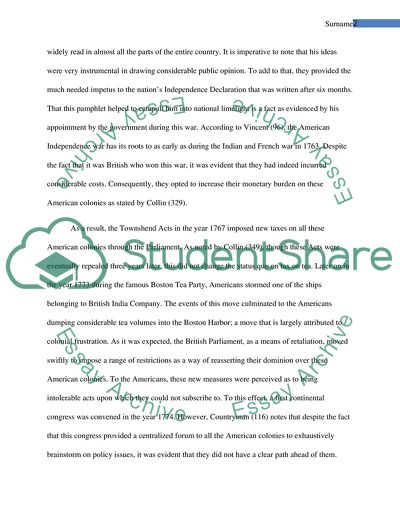Cite this document
(Thomas Paine and the Idea of Mixing Politics and Religion Case Study, n.d.)
Thomas Paine and the Idea of Mixing Politics and Religion Case Study. Retrieved from https://studentshare.org/history/1730521-historical-analysis-of-common-sense
Thomas Paine and the Idea of Mixing Politics and Religion Case Study. Retrieved from https://studentshare.org/history/1730521-historical-analysis-of-common-sense
(Thomas Paine and the Idea of Mixing Politics and Religion Case Study)
Thomas Paine and the Idea of Mixing Politics and Religion Case Study. https://studentshare.org/history/1730521-historical-analysis-of-common-sense.
Thomas Paine and the Idea of Mixing Politics and Religion Case Study. https://studentshare.org/history/1730521-historical-analysis-of-common-sense.
“Thomas Paine and the Idea of Mixing Politics and Religion Case Study”, n.d. https://studentshare.org/history/1730521-historical-analysis-of-common-sense.


